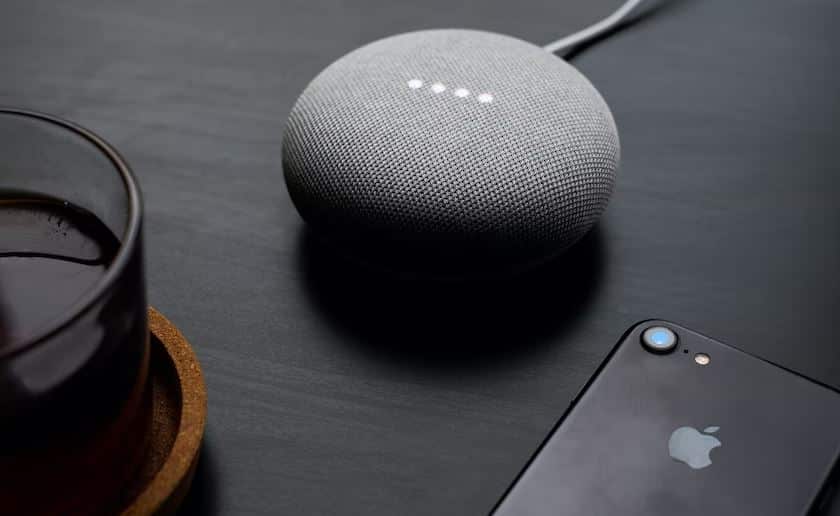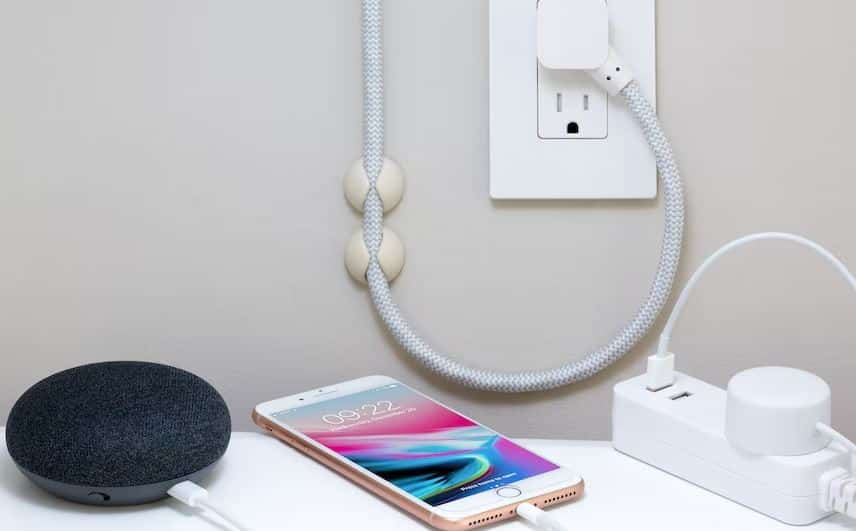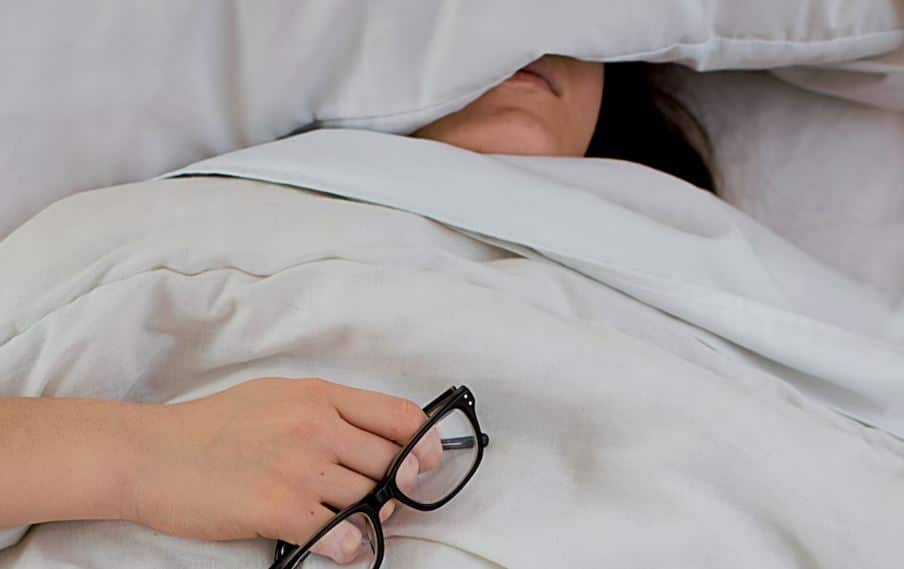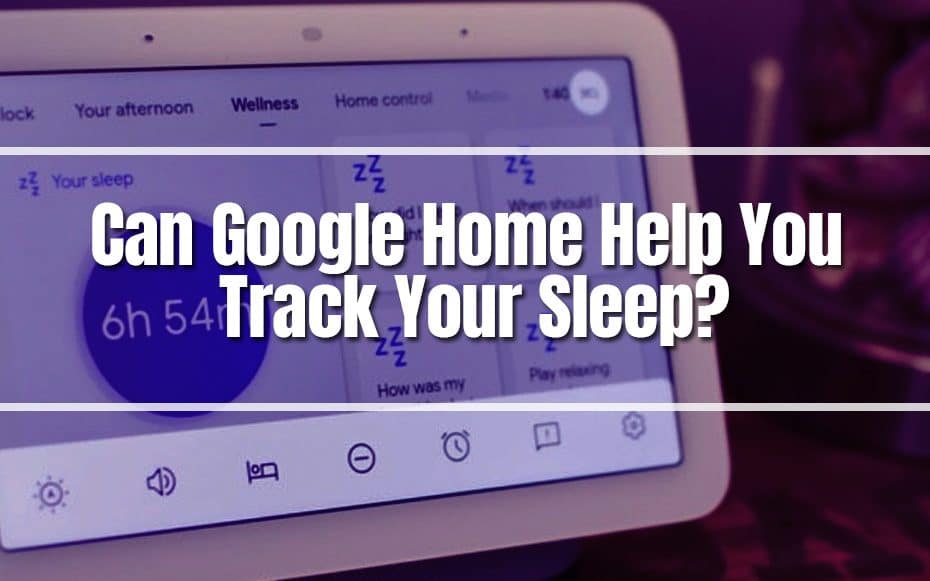Now in its second version, Google’s Nest Hub smart display is a viable substitute for wearables and other sleep monitors. It tracks your sleep while not being too intrusive, yet it still provides some benefits associated with such devices, such as convenience or precision in tracking motions while sleeping.

Sleep Sensing is the feature that exactly accomplishes what you’d expect. The Nest Hub can track your motions and utilize them to track light and deep sleep. Yet how does it operate in practice? We’ll explore it further.
More “Smarter” Display
In a post on The Keyword, Google introduced the second-generation Nest Hub. The new Nest Hub arrived approximately two years after the previous Nest Hub. The new Hub outperforms its predecessors in every major category and has Sleep Sensing.
The redesigned Nest Hub has the same design as its predecessor. The 7-inch display is protected by edgeless glass, which Google claims are easy to clean. The smart display is made of recycled materials, with 54% recycled post-consumer plastic.
Google boosted the speaker performance on the second-generation Nest Hub by employing the same technology as the Nest Audio, allowing for 50% more bass.
Google has introduced a specialized on-device machine learning processor to the Nest Hub, following in the footsteps of the Nest Audio and Nest Mini; this allows for speedier processing of commonly used Assistant commands, enhancing the overall user experience. This function is currently only available in the United States.
Because of Thread support, the Nest Hub can function as a smart home hub — this allows the gadget to effortlessly communicate with other Thread-compatible low-power items in your home. It can also serve as a router for these devices, allowing them to be connected to the internet.
Quick Gestures enable you to play or stop content on the Nest Hub merely by tapping the air in the vicinity of the display. You may also use the motions to snooze an alarm or to stop a timer.
Get To Know Sleep Sensing
Google has added Sleep Sensing to its latest Nest Hub and Nest Hub Max models. According to the firm, it can measure your sleep patterns, such as how much time you spend in bed. It accomplishes this by using Motion Sense, powered by Soli low-energy radar technology, and scans for movement to determine who is nearest to the display at any particular time.

It also functions as a smart alarm, gently nudging you awake during light slumber, which is the most rejuvenating approach to waking up.
Sleep Sensing monitors your sleep, measures your breathing, and identifies any noises that may wake you up at night, such as coughing or snoring. As Sleep Sensing learns about your sleeping habits, you’ll receive individualized insights and sleep-improvement advice.
The Nest Hub can sense daylight and temperature variations in the room through the built-in microphones, temperature, and ambient light sensors. The smart display can determine how such changes affect your sleeping pattern using this data.
Tracking Your Sleep With Google Nest Hub
To begin tracking your sleep with Google Nest Hub, turn on Sleep Sensing. Follow these simple steps to enable Sleep Sensing:
- Launch the Google Home iOS or Android app.
- Tap your Nest Hub, then select Settings.
- Select Sleep Sensing.
- Established Sleep Sensing is the option.
- To activate Sleep Sensing on your Nest Hub display, follow the steps in the app.
- Set a bedtime routine.
You can also choose whether to activate sound event tracking or tailored sleep suggestions.
After setting Sleep Sensing in the Google Home app, the next step is configuring your Google Nest Hub for proper sleep tracking. You can adjust your gadget by doing the following:
- Slide up on the screen, then select Settings.
- Turn on Motion Sense by tapping it.
- Finally, tap Calibrate and comply with the instructions to tell Nest Hub whenever you sleep.
Sleep Summary Explanation
The Nest Hub provides a complete picture of your sleep quality, allowing you to go deeper after some tracking time. It’s also possible that you’ll receive suggestions for ways to improve things, such as getting up on time or sleeping better.
To get a thorough breakdown of your sleep quality, you may view the report on your mobile in the Google Fit app for iOS or Android, in the sleeping area, or ask: “Hey Google, how did I sleep last night?
You will be given a breakdown of the duration and intensity of your motions throughout the night. It presents insight into the restful and mild stages of sleep you encountered and the frequency with which you woke up, like most sleep trackers.
Privacy and Security Concerns
All audio and rough data from the sleep tracking are processed locally on the Nest Hub owing to the on-device ML chip, and only relevant sleep data is transferred to the cloud.
Furthermore, remember that anyone with access to your Nest Hub can examine and erase your most current Sleep Sensing summary and wellness information.
Sleep Sensing is available as a complimentary preview on the second-generation Nest Hub until the end of 2022, last year. According to the company, Fitbit’s sleep-tracking functionality is also integrated with Sleep Sensing.

With privacy in mind, Google assures that all coughing and sneezing data on the new Nest Hub is processed on-device. MotionSense can only detect motion and cannot recognize your face or body.
There’s also a physical hardware switch on the Nest Hub to turn off the microphone. There are several ways to disable different features of Sleep Sensing. Google also commits not to utilize any Sleep Sensing data to offer tailored adverts.
Conclusion
With technology in the bedroom, we can’t help but be concerned about how much or how well we sleep. With this function, Google not only simplifies our lives with technology but also allows us to discover more about ourselves.
The Google Nest Hub’s sleep data will only fix some of our problems, but making simple tweaks to your daily routine could enhance your sleep quality. Things like sticking to a regular bedtime and developing a sleep regimen can make a significant difference.
